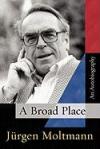One of the most common criticisms levelled at theologians is that what they  do has no bearing on “real life,” whether that is understood as the day to day realities of indiviudal life, or the corporate life of the church. Theology for most is a necessary evil at best and at worst a cancer on the church. Sadly, on occasion theologians themselves see their own task as irrelevant to the mission and worship of Christ’s church.
do has no bearing on “real life,” whether that is understood as the day to day realities of indiviudal life, or the corporate life of the church. Theology for most is a necessary evil at best and at worst a cancer on the church. Sadly, on occasion theologians themselves see their own task as irrelevant to the mission and worship of Christ’s church.
In an article dealing with the content of T.F. Torrance’s understanding of the Holy Spirit, Elmer Colyer shows T.F. Torrance’s basic theological method can help to “resuscitate” relevance back into the theological task.
Colyer calls Torrance’s basic approach to the theological task “a participatory evangelical and doxological approach.” If one looks at the individual words in Colyer’s label, the general contours of Torrance’s method can start to come to light.
For Torrance theology is a participatory endeavor. This refers to the theologian’s interaction with the Triune God Himself. Since God can only be  known in a manner consistent with who He is, then it follows that since God has revealed himself as (1) Triune, revealed in the economy of salvation, and (2) the reconciling God, which also contains a trinitarian structure, then we can fashion no other “base” to begin to know him. This includes both the seminary library and the ho-hum of “real” life.
known in a manner consistent with who He is, then it follows that since God has revealed himself as (1) Triune, revealed in the economy of salvation, and (2) the reconciling God, which also contains a trinitarian structure, then we can fashion no other “base” to begin to know him. This includes both the seminary library and the ho-hum of “real” life.
While we can certainly experience the presence and reality of God anywhere, we can only know God consistent with the way he has chosen to reveal himself. So to know God we must interact with him in a restored relationship. Colyer writes that
We come to know the triune God of Christian faith by entering into a saving and intensely personal relation with the God of love through the grace of Christ in the communion of the Spirit (161).
We engage this God primarily in the evangelical and doxological life of the church. As we worship, go out to proclaim the grace of God, study the scriptures, and remember the last supper we continue through our interactions with God to come to know him deeper.
Given these core convictions, it is not surprising that Torrance views the value of theology being in the
rigorous refinement and extension of the knowledge of God communicated in the gospel and realized in the lives of ordinary Christians within the church (162).
Theology, fundamentally then, seeks to aid the church and individual believers by clarifying who God is and, in the words of Andrew Purves “what he is up to” in the economy of salvation and in individual believers beautiful and difficult lives.
What is the upshot of all this? One should understand that, fundamentally, theology is a discipline of service. It’s more concerned with faithfulness than novelty, although at times innovation may be the best expression of that virtue. While no doubt such a task is daunting and at times requires  esoteric language, this only puts the impetus on theologians to work that much harder to make their work conform to the above specifications. Believers who aren’t called to this life of faithfulness and service cannot and should not be expected to scale theologian’s ivory towers; theologians must come down, not condescendingly, but humbly and with joy, giving thanks for the role they get to play in God’s work of reconciling the world to himself.
esoteric language, this only puts the impetus on theologians to work that much harder to make their work conform to the above specifications. Believers who aren’t called to this life of faithfulness and service cannot and should not be expected to scale theologian’s ivory towers; theologians must come down, not condescendingly, but humbly and with joy, giving thanks for the role they get to play in God’s work of reconciling the world to himself.
If we can, in Colyer’s words, heed Torrance’s warning to not separate revelation and reconciliation, perhaps theologians can better remember that they possess no fundamental unique access to God, but seek to understand him much like every other believer, and devote their lives to render that understanding faithfully and practically to Christ’s body for the furtherance of the mission of God.























